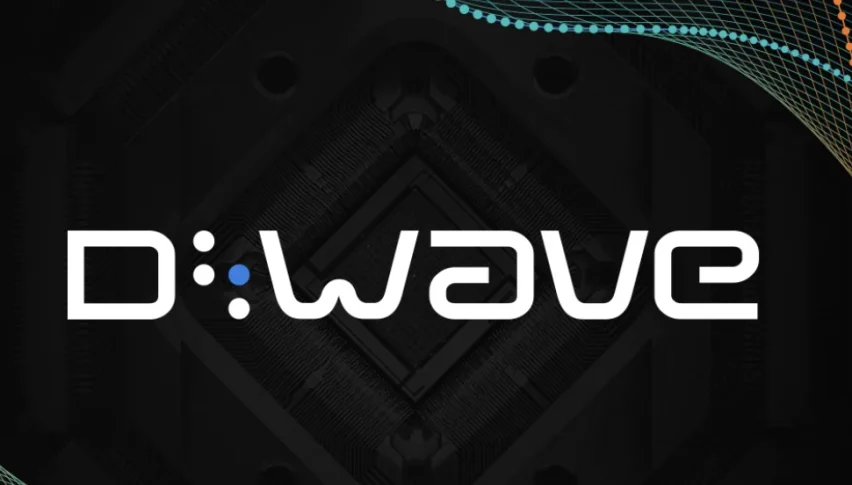QBTS Stock Breaches $20 with D-Wave’s Losses and Liquidity Fears Mounting
D-Wave's latest results indicate underlying structural problems that are restricting investor enthusiasm, despite a brief rand rebound and o

Quick overview
- D-Wave Quantum reported a deeper-than-expected loss of $0.41 per share for Q3 2025, raising concerns about its long-term viability.
- Despite doubling revenue to $3.7 million year-over-year, investor focus shifted to profitability, leading to a sharp decline in share price.
- The company's decision to initiate a forced warrant redemption has heightened investor anxiety, interpreted as a sign of financial unease.
- D-Wave's challenges reflect broader issues in the quantum computing industry, where the market is demanding tangible results amid rising operating costs.
D-Wave’s latest results indicate underlying structural problems that are restricting investor enthusiasm, despite a brief rand rebound and optimism in AI-related sectors.
Rising Doubts After a Disappointing Quarter
D-Wave Quantum’s once-impressive momentum has come to an abrupt halt, as its latest earnings report rekindled persistent questions around its long-term viability. The company delivered a deeper-than-expected loss for the third quarter of 2025, reporting a per-share loss of $0.41, far wider than analysts had forecast. Even after adjusting for warrant-related factors, the company still remained in negative territory, reflecting its struggle to rein in costs and establish sustainable operating efficiency.
Although revenue doubled year-over-year to $3.7 million, the market’s response was unforgiving. Investors, already wary of lofty valuations across the AI and quantum computing landscape, focused less on top-line growth and more on the lack of profitability. The fresh losses reinforced a growing belief that the broader sector may be overheating, regardless of stronger earnings reports from established players like Nvidia. D-Wave’s continued losses positioned the company as yet another example of ambition running ahead of fundamentals.
As a result, shares slid sharply, reaching the low $20 range as confidence in the stock eroded. The widening gap between revenue growth and mounting expenses has raised fresh doubts about whether D-Wave can reach meaningful profitability in a reasonable timeframe.
A Sharp Shift in Momentum and Technical Weakness
The latest decline marks a dramatic reversal from the enthusiasm seen just weeks earlier. D-Wave’s stock had surged to highs near $46 in mid-October, fueled by speculation and renewed interest in emerging computing technologies. That optimism, however, proved short-lived. The share price has since fallen by more than half, erasing the majority of its recent gains and deeply frustrating investors who chased the rally.
QBTS Chart Daily – The 100 SMA Has Turned Into Resistance
Technically, the picture has deteriorated significantly. The stock has slipped below its 100-day moving average, which has now transformed from support into resistance — a discouraging signal for traders. Meanwhile, the 50-day average is being tested, and failure to hold above key levels may expose the price to further decline. Many analysts now see the low-$20 range as a critical zone, though even that may offer only limited respite if selling pressure continues.
Market momentum has unmistakably shifted toward pessimism, with brief rebounds quickly overwhelmed by renewed waves of selling.
Warrant Redemption Heightens Investor Anxiety
Adding to the negative sentiment was the company’s decision to initiate a forced warrant redemption. Holders were given a tight window to exercise their warrants before they became virtually worthless. While management framed the move as a strategic effort to strengthen liquidity and streamline the capital structure, the market interpreted it as a signal of financial unease.
The redemption affects millions of outstanding warrants and has fueled concerns that D-Wave is prioritizing quick capital access over long-term shareholder value. Although the company claims a healthy cash position, critics point out that much of this capital originates from previous fundraising rather than from core operations. To many investors, that distinction matters — and it underscores doubts about the durability of the business.
Quantum Computing’s Reality Check
D-Wave’s challenges are unfolding as part of a broader shift across the quantum computing industry. After months of speculation and inflated expectations, the market has begun demanding tangible results and sustainable profits. The company’s technological feats — including its next-generation systems and expanding international bookings — have yet to translate into dependable earnings.
Rising operating costs, long development cycles, and uncertain commercialization timelines continue to weigh heavily on sentiment. As a result, D-Wave has become symbolic of the wider risks embedded in the quantum computing narrative: impressive innovation paired with fragile financial footing.
Outlook: Pressure Builds as Confidence Wanes
The company’s recent slide reflects more than a disappointing quarterly report. It represents mounting frustration with unfulfilled promises in a capital-intensive, highly speculative industry. Unless D-Wave can demonstrate measurable progress toward profitability and operational discipline, the market is unlikely to offer leniency.
For now, the story has shifted from optimism to caution. And in an environment where hype is no longer enough, D-Wave faces a stark test: prove the business can deliver, or continue to feel the weight of market reality.
- Check out our free forex signals
- Follow the top economic events on FX Leaders economic calendar
- Trade better, discover more Forex Trading Strategies
- Open a FREE Trading Account
- Read our latest reviews on: Avatrade, Exness, HFM and XM

